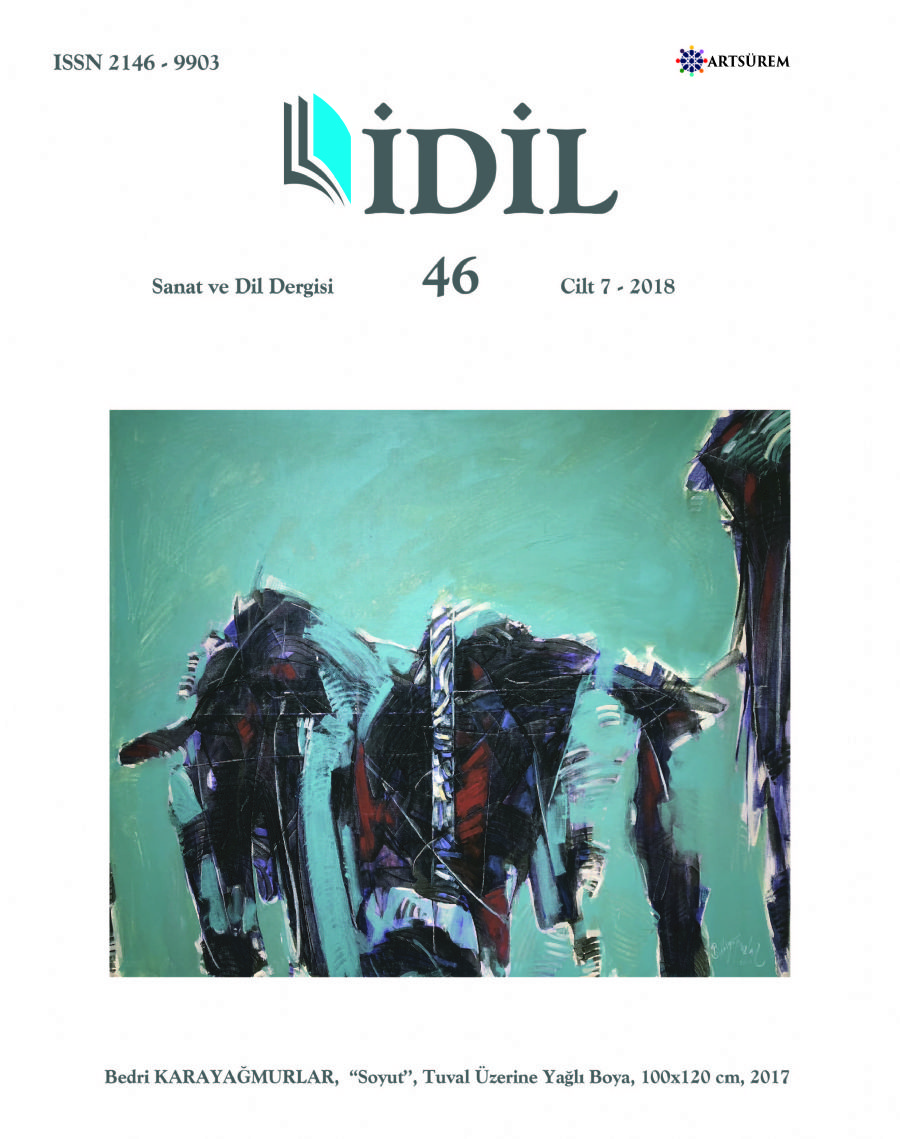DOĞU-BATI KARŞILAŞTIRILMASI BAĞLAMINDA FYODOR DOSTOYEVSKİ VE VLADİMİR MAKANİN’İN RUSYASI
AN ANALYSIS ON THE PROCESS OF BECOMING AN “ORCHESTRAL MUSICIAN” IN ISTANBUL STATE SYMPHONY ORCHESTRA
Author(s): Nurettin ÇakirSubject(s): Music, Sociology of Culture, Eastern Orthodoxy
Published by: Sanat ve Dil Araştırmaları Enstitüsü
Keywords: Classical music; symphony orchestra; becoming an orchestral musician; interaction; ethnomusicology;
Summary/Abstract: Russians, who are located east of Europe and had chance to expand the state borders to the east and the south, followed the road to becoming both Asian and European state and civilization instead of being totally Slavic and European state. Russians, who expand its mainland towards Caucasia, Siberia, Central Asia, approved the duty of being the representer of western civilizations’ values and took on a task of carrying civilization to Asia’s underdeveloped public. Moreover it claimed that it protected Europe from attacks of Asia’s barbarian public and it wasn’t satisfied with it and assumed the role of guardian of all Slavics and Orthodox Christians. The Russian policy of western expansion which started with Petro I, created a diversity of assumptions and evaluations by the Russian intellects and authors. Among Herzen, Chernyshevsky, Turgenev, Tolstoy; especially Dostoyevsky crated attention with the works regarding the East-West discussions. While Dostoyevsky defended the idea of thinking the Russian nation as a part of western civilization, he also criticized the West for the prejudices towards Russia. The people who are seen as Asian or Tatar in western eyes are portrayed as the people who carried European civilization to Asia by Dostoyevsky. Makanin, just like Dostoyevsky, joined the East-West discussion as representative of Russian literature and also defended the western values. Makanin, who portrays as a nationalist like Dostoyevsky, approaches the Caucasian and Central Asian ethnical elements who come to Russia from ex-Soviet lands to work, with negative expressions and examples. He depicts easterners as those who are using the riches and sources of Russia for their own benefit and who tramples the Russian national pride.
Journal: İdil Sanat ve Dil Dergisi
- Issue Year: 7/2018
- Issue No: 46
- Page Range: 673-683
- Page Count: 11
- Language: Turkish

